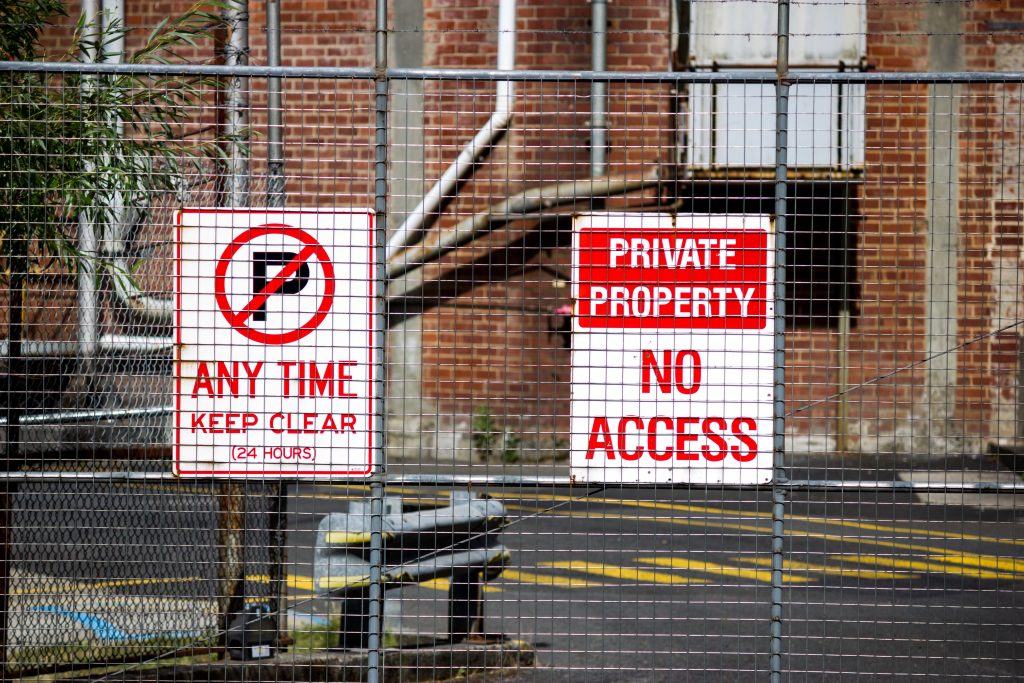The owner has the right to use freely one’s property and to do any changes or modifications that seem to him convenient, as long as he does not infringe the rights of others by “ove comincia l’altrui offesa, ivi si arresta il potere assoluto sulla propia cosa” (Cass. Napoli, 9 Marzo, 1894).
Articles 320 and 1030 of the Civil Code provide:
Art 320;
“Ownership is the right of enjoying and disposing of things in the most absolute manner, provided no use thereof is made which is prohibited by law.”
Art 1030;
“Any person who makes use, within the proper limits, of a right competent to him, shall not be liable for any damage which may result therefrom.”
According to the Italian author Borsari, the use of the right over one’s property end at the point where someone else’s right starts. In article 574 of the Italian Civil Code which corresponds to art 140 of the ordinance number 7 of 1868, had to be interpreted that in the conflict of rights between owners of adjacent properties, the safeguarding of the enjoyment of right of that which appertains to one party does not lead into a limitation of the other party or/and in prohibition of the exercise of an industry of one’s own property. Therefore the interpretation must favour the equilibrium of the different rights; equity.
In addition according to the Italian author Giorgi when such infringement arises out of exercising one’s rights in one’s industrial establishment and it is not grave, therefore it doesn’t exceed the limit of tolerance which constitutes the real measure of the obligations of good neighbour, it has to be suffered by the neighbour who has no right to ask for indemnification because of the prejudice occasioned to him. “Per misurare la gravita della molestia devesi riguardare non solamente alla natura, ma anche alla posizione e situazioni dei fondi e alle anteriorita’ del possesso”. If this inconvenience is grave, excessive and unbearable, or better yet, not easily tollerable, the neighbour can demand for the disturbance to end, even if such establishment is licensed, as the license doesn’t prejudice the rights of third parties. In order to assess the gravity of such; one should take into consideration the circumstances in which the object is being used for, the conditions of use, where the object is being used and if it is being used for a particular industry.
Most of the time, in order to establish if the inconvenience caused is reasonably tolerated it has to be determined by the concrete circumstances of the case, however, it can also be deduced from the damage caused to the health of that person (Graziella Cutogno pro et noe vs George Xuereb – Maġ. Għ. AE 28.6.2007).
According to the French commentator Laurent, the enjoyment is not just disrupted by effecting movables or immovables but it could arise when one affects the enjoyment and tranquility of the neighbour. One has to keep in mind that the abuse occurs not just when the owner physically enters the land of someone else but also in other cases of immissio in alienum, whereby although they are not evident and are untouched, they are still felt. Sound, heat, dust, and exhaust can all be felt if they are not within certain limits, hence these can be considered as illicit invasions to someone else’s property and therefore the damage they cause is damnum iniuria datum. Although the owner has the obligation to minimise as much as possible the inconvenience posed on his neighbours, the neighbours on the other hand are obliged to tollerate these emissions as long as they are within a reasonable and tolerable limit.
“Il-liġi tirrikonoxxi lill-proprejatrju d-dritt li jagħmel użu liberament mill-fond tiegħu u li jagħmel fih dawk il-modifikazzjonijiet li jidhru li jkunu ta’ konvenjenza anke meta b’ dan ikun qiegħed jippriva lill-ġar minn xi vantaġġ li kellu purke’ ma jikkawżax b’daqshekk lill-viċin b’ molestja gravi… il-viċin jista’ jaġixxi fuq molestja biss meta din tkun gravi u mhux faċilment tollerabbli.”
(Emanuel Abela vs Sebastian Żammit – 7 ta’ Ottubru 1996)
The court continued to follow on these principles in the following cases:
- Bugeja et vs Washington (1896)
- Vincenzo Meli vs Giuseppe Calleja (Civil Appeal, 5th February 1908)
- Calcedonio Cianta vs Salvatore Ciantar (Commercial Court, 31st March 1938)
- Giacomo Muscat vs Giuseppe Falzon (Civil Appeal, 27th June 1952)
- Pio Bezzina vs Giacomo Galea (Civil Appeal, 27th June 1955)
- Pio Briffa et vs Joseph Aquilina nomine (Commercial Appeal, 15th April 1966)
- Ronnie Scicluna vs Anthony Guillaumier nomine (Commercial, 19th October 1970)
- John Testa vs Anthony Bruno et nomine (Commercial Appeal, 30th may 1988)
This shall not be construed to be as advice but shall merely serve as a brief description of the rights and duties of the Owner. If you would like to discuss this further please do not hesitate to contact us on [email protected] .

